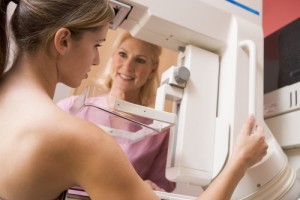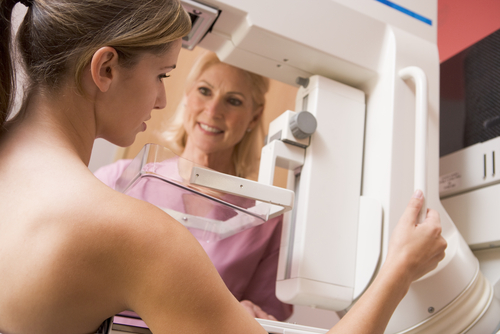 According to a recent study, women undergoing mammograms that result in false alarms have an increased risk of developing breast cancer in the future, however, the underlying cause remains unknown.
According to a recent study, women undergoing mammograms that result in false alarms have an increased risk of developing breast cancer in the future, however, the underlying cause remains unknown.
Research had already been conducted showing false-positive results from mammography screening correlated with an increase in risk for being diagnosed with breast cancer when compared to negative mammography results. However, the authors wanted to assess the excess risk of cancer after a false-positive result excluding cases of misclassification, such as women who were actually false-negatives instead of false-positives.
In a study entitled “Increased risk of breast cancer in women with false-positive test: The role of misclassification” and published in The International Journal of Cancer Epidemiology, Detection and Prevention, the team used data from the Copenhagen Mammography Screening Programme in Denmark to analyze epidemiological data from 295 out of 4,743 women from a total of 58,003 participants who had a false-positive test during the screening period of 1991–2005 and who later developed breast cancer.
Breast cancers that developed in the same location as the finding that initially caused the recall were studied in-depth to understand whether there had been misclassifications.
The researchers observed that doctors failed to detect cancer in 72 of 295 women studied, leading to a rate of false-negatives of 1.5%. Nonetheless, after considering those misdiagnoses, women who had false-positive mammograms were still found to be 27% more likely to receive a breast cancer diagnosis years later in comparison to women who only registered negative results on exams. Furthermore, this risk was increased for women who underwent surgical biopsies that were negative.
Nonetheless, the authors were not able to explain the increased risk for women in developing breast cancer later in life who had received false-positive mammograms. However, lead author My von Euler-Chelpin, an epidemiologist from the University of Copenhagen in Denmark, hypothesized that in analyzing American women, a small percentage may experience an increased risk for being diagnosed with breast cancer in the wake of receiving a false-positive mammogram due to the fact that the U.S. reports a higher false positive rate than in Denmark (58 to 77% vs 16%).
[adrotate group=”3″]
“It’s hard to translate the data to the U.S. population because we have such a different screening program, we tend to biopsy everything, and we’re much more aggressive,” added Dr. Michael Alvarado, a breast cancer surgeon from the University of California, San Francisco, in a Reuters Health interview.
In the same interview, Dr. Von Euler-Chelpin added “the excess rate of breast cancer among women who have had false-positive mammograms points to the need to personalize screening programs for women.”
A breast cancer risk calculator app is being developed by Dr. Karla Kerlikowske from the University of California, San Francisco for advising women in determining the frequency that they should receive mammograms. This calculator evaluates factors such as past breast cancer history, race, age, breast density, and family history, and has shown that the average 5-year risk for a breast cancer diagnosis for a white woman who is 50-years-old with no previous history of breast cancer in the family is 1.25%, ranging from less than 1% to 2.70%, depending on breast density for the same woman who underwent a prior biopsy, independent of its positive or negative result.
According to the American Cancer Society, women should get a breast cancer screening each year once they reach 40 years of age. However, researchers have previously questioned the practice of annual mammograms, resulting in new recommendations of screening every two years in women aged 50 to 74 by the United States Preventive Services Task Force, a practice that was proven safe and didn’t correlate with an increased risk of developing advanced breast cancer, according to a study published by Dr. Kerlikowske last year.

